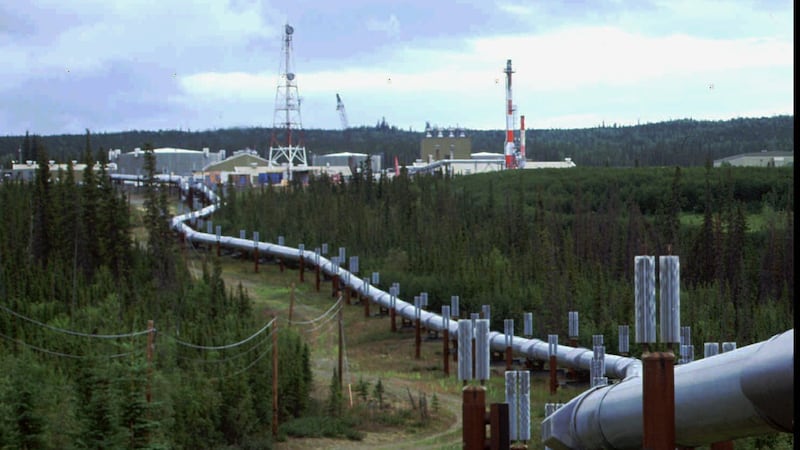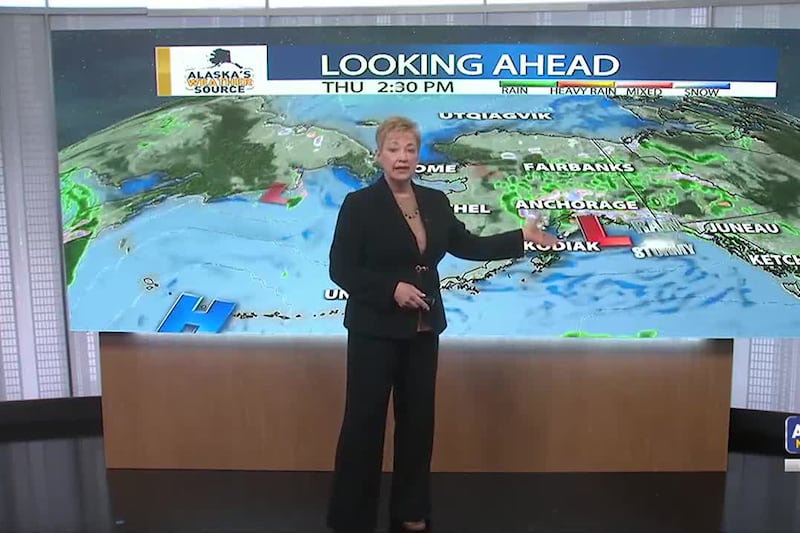## The North is Feeling the Chill: Fairbanks Businesses Brace for Economic Storm The Alaskan wilderness may be known for its breathtaking beauty and rugged resilience, but even the toughest landscapes can feel the strain of uncertainty. A recent Business Climate Survey paints a bleak picture for Fairbanks, revealing a growing sense of unease among local businesses. Are economic headwinds threatening to derail the Golden Heart City’s momentum? We delve into the survey’s findings, exploring the challenges facing Fairbanks’ entrepreneurs and the potential implications for the future of Alaska’s second-largest city. Buckle up, adventurers – the journey ahead might be bumpy.
Looking Ahead: A World of “What-Ifs”
Forecasting Business Sentiment for 2025: The Near-Even Split in Optimism and Pessimism

The recently released Business Climate Survey by the Fairbanks Economic Development Corporation (FEDC) reveals a fascinating split in sentiment among local businesses regarding the economic outlook for 2025. While 30% of respondents anticipate improvement, a nearly equal 31% expect conditions to worsen, signaling a high level of uncertainty about the year ahead. This cautious optimism, or perhaps cautious pessimism, is likely influenced by a confluence of factors impacting the local economy.

Drivers of Uncertainty: Examining the Factors Respondents Cite as Reasons for Both Optimism and Pessimism
The survey highlights several key drivers behind these differing outlooks. On the positive side, respondents point to a robust tourism sector, the resurgence of activity on the North Slope, and the advantages Fairbanks enjoys as a logistical hub with a high quality of life. These factors contribute to a sense of optimism about the potential for growth and development.
However, concerns about state and federal policies, funding uncertainty, and the volatility caused by executive orders dampen the overall sentiment. Respondents express anxieties about the potential impact of these external factors on their businesses.

Potential Impact of Federal Government Actions and Policies on Local Businesses
The survey underscores the significant influence federal policies have on the Fairbanks business community. Uncertainty surrounding federal funding, changes in regulations, and the overall economic direction set by the federal government create a sense of vulnerability among local businesses. This highlights the importance of staying informed about federal policy developments and advocating for policies that support local economic growth.

Challenges, Priorities, and the Road Ahead
Top Challenges Facing Fairbanks Businesses: Outmigration, High Cost of Living, and Federal Uncertainty
The survey identifies three major challenges facing Fairbanks businesses: outmigration, the high cost of living, and uncertainty stemming from federal government actions. Outmigration, the ongoing trend of residents leaving the area for other opportunities, impacts the workforce pool, while the high cost of living can make it difficult for businesses to attract and retain employees. Federal uncertainty adds another layer of complexity, making it challenging for businesses to plan for the future.

Economic Priorities for the Future: Energy Costs, Education, Workforce Attraction and Retention
Despite the challenges, the survey reveals a clear focus on priorities for economic growth. Respondents prioritize addressing the high cost of energy, improving the quality of K-12 education, and attracting and retaining a skilled workforce. These priorities reflect the fundamental needs of businesses to operate efficiently, invest in their future, and ensure a stable and productive workforce.
FEDC’s Role in Addressing Uncertainty: Strategies and Initiatives to Support Local Businesses
The FEDC plays a crucial role in mitigating uncertainty and supporting local businesses. The organization is actively engaged in initiatives to address the top challenges identified in the survey. This includes:
- Workforce Development: Implementing programs and partnerships to attract and retain a skilled workforce, addressing the critical issue of talent shortage in key industries.
- Energy Cost Reduction: Advocating for policies and exploring solutions to reduce energy costs, a significant burden for businesses, and promoting energy efficiency initiatives.
- Business Advocacy: Providing a voice for local businesses at the state and federal levels, advocating for policies that support economic growth and address concerns about federal uncertainty.
The FEDC’s proactive approach to addressing these challenges positions Fairbanks as a resilient and adaptable community, ready to navigate the uncertainties of the future and build a stronger and more sustainable economy.
Conclusion
The latest Business Climate Survey paints a stark picture for Fairbanks businesses, revealing a growing sense of uncertainty about the future. From fluctuating energy prices to concerns about labor shortages and inflation, the challenges are mounting. This instability doesn’t just impact local businesses; it reverberates through the entire community, threatening jobs, investment, and the overall economic health of the region.
The survey’s findings serve as a wake-up call, urging local leaders, policymakers, and business owners to collaborate and find solutions. This isn’t simply about weathering the storm; it’s about building a more resilient and adaptable economy for Fairbanks. Addressing the concerns raised, such as exploring alternative energy sources, investing in workforce development, and fostering a more stable business environment, is crucial to ensuring a brighter future for the Golden Heart City.
The uncertainty facing Fairbanks businesses is a challenge, but it’s also an opportunity. By embracing innovation, fostering collaboration, and adapting to the changing landscape, Fairbanks can not only overcome these hurdles but emerge stronger and more resilient than ever before. The path forward may be uncertain, but the spirit of resilience that defines Fairbanks gives us hope for a brighter future.